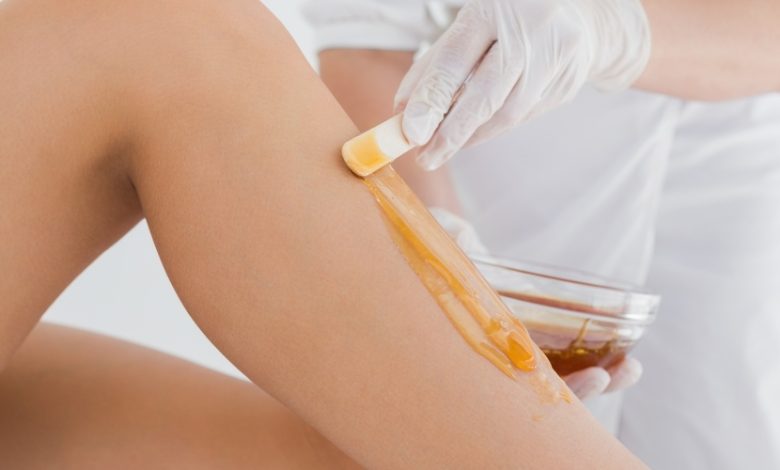Tips For Waxing: A Comprehensive Guide To Waxing Before and After

Waxing is a popular and effective method of hair removal that leaves the skin smooth and hair-free for an extended period with waxing at home service. Whether you’re a seasoned waxing enthusiast or a first-timer, achieving the best results and maintaining skin health requires proper preparation and aftercare. In this comprehensive guide, we will delve into the essential tips for waxing, including pre-waxing preparation and post-waxing care. From avoiding common mistakes to enhancing the waxing experience, these tips will ensure a smooth and successful waxing session, leaving you with silky smooth skin.
I. Pre-Waxing Preparation: Setting the Stage for a Smooth Waxing Experience
1. Assess Hair Length and Trimming:
– Measure hair length: The ideal hair length for waxing is between 1/4 to 1/2 inch (6-12 mm). Hair that is too short may not adhere well to the wax, while hair that is too long can cause unnecessary pain during removal.
– Trim when needed: If your hair is longer than the recommended length, consider trimming it before your waxing session. Use clean, sharp scissors and trim the hair evenly to ensure a smoother waxing process.
2. Exfoliation for Smooth Results:
– Gentle exfoliation: Exfoliate the skin a day or two before your waxing appointment to remove dead skin cells. This helps the wax adhere better to the hair, resulting in more effective hair removal and reducing the risk of ingrown hairs.
– Avoid exfoliating immediately before: However, avoid exfoliating on the same day as your waxing appointment, as it may make your skin more sensitive.
3. Keep the Skin Hydrated:
– Drink plenty of water: Hydrate your body from within by drinking enough water. Proper hydration helps maintain skin elasticity and makes the waxing process more comfortable.
– Avoid hot showers before waxing: Refrain from taking hot showers or baths immediately before your waxing session, as hot water can make the skin more sensitive and prone to irritation during waxing.
4. Sun Exposure and Tanning Precautions:
– Protect the skin from the sun: Avoid excessive sun exposure before waxing, as sunburned skin can be more sensitive to waxing. If you have a sunburn, wait until your skin has fully healed before getting waxed.
– Skip tanning beds: Similarly, avoid using tanning beds before waxing, as they can increase skin sensitivity and cause discomfort during the process.
5. Avoid Moisturizers and Oils:
– Clean, dry skin is essential: On the day of your waxing appointment, refrain from applying lotions, oils, or creams to the area being waxed. These products can create a barrier between the wax and the hair, making the process less effective.
II. During Waxing: Techniques and Tips for a Comfortable Experience
1. Communicate with Your Esthetician:
– Inform about skin conditions: Before the waxing begins, communicate any skin conditions, allergies, or medications you are taking to your esthetician. This information allows them to tailor the waxing process to your specific needs and ensure your safety and comfort.
2. Request a Test Patch:
– Test for sensitivity: If you are trying a new waxing product or technique, request a small test patch first. Apply the wax to a small area to check for any adverse reactions before proceeding with the full treatment.
3. Employ Breathing and Relaxation Techniques:
– Breathe and relax: During the waxing process, practice deep breathing and relaxation techniques. Deep breaths can help reduce discomfort and tension, making the experience more bearable.
4. Stay Calm and Communicate:
– Speak up: If you experience excessive pain or discomfort during the waxing process, communicate with your esthetician. They may be able to adjust their technique or take additional steps to make you more comfortable.
III. Post-Waxing Care: Nurturing Your Skin After Hair Removal
1. Soothe and Cool the Skin:
– Cool compress: Apply a cool compress or cold pack to the waxed area immediately after the procedure to soothe the skin and reduce redness.
– Avoid hot water: Refrain from using hot water on the waxed area for at least 24 hours after waxing, as it can further irritate the skin.
2. Moisturize and Hydrate:
– Apply a calming moisturizer: After waxing, gently apply a moisturizer or post-waxing product recommended by your esthetician. Look for products containing aloe vera or chamomile to soothe and calm the skin.
– Drink water: Continue to hydrate your body by drinking water to keep your skin healthy and maintain its natural moisture balance.
3. Avoid Sun Exposure:
– Tips Protect the skin from the sun: For the first 24-48 hours after waxing, avoid exposing the waxed area to direct sunlight. If you must go outside, apply a broad-spectrum sunscreen with an SPF of at least 30 to protect the skin.
4. Avoid Friction and Tight Clothing:
– Prevent irritation: Avoid activities that may cause friction or irritation to the waxed area, such as rigorous exercise or wearing tight clothing. Loose, breathable clothing will be more comfortable and reduce the risk of irritation.
5. Exfoliate Wisely:
– Gentle exfoliation: After 48 hours, you can resume gentle exfoliation to prevent ingrown hairs. Use a mild exfoliating product or a soft cloth to gently buff the skin in circular motions.
6. No Swimming:
– Skip swimming pools: Avoid swimming pools, hot tubs, and saunas for 24-48 hours after waxing. Chlorine and other chemicals in the water can irritate the freshly waxed skin.
Conclusion:
Waxing is an excellent hair removal option that can leave your skin silky smooth and hair-free for an extended period. By following the tips and techniques in this comprehensive guide, you can ensure a successful and comfortable waxing experience. Remember to prepare your skin adequately before waxing, communicate with your esthetician, and provide gentle care to your skin afterward. With the right approach to waxing, you can enjoy the benefits of smooth, beautiful skin for weeks to come.
The skin will be less sensitive if waxing is done regularly. Over time the hair follicle will have less and less of a grip on the hair to be pulled and the hairs will come out more easily. Another reason to wax frequently is that you may even experience less hair growth over time.
The benefits of a bikini wax far outweigh the benefits of shaving. A bikini wax lasts longer than shaving because it removes hair directly from the follicle, while shaving simply cuts hair. Hair takes longer to grow back with a bikini wax and the regrowth is soft, thin, and sparse with regular waxing.
Although the results are fairly similar, there’s one key difference: how long they last. On average, waxing lasts around 3 or 4 weeks because the hair is removed at the root. Hair grows back much faster with shaving, though — within 3 days to a week. This is because shaving only removes the top layer of the hair.
While it depends on many factors, results from waxing can last up to 6 weeks. However, this doesn’t mean you’re hair-free for this long. You’ll probably start to see new hair growth around 3 to 4 weeks.






